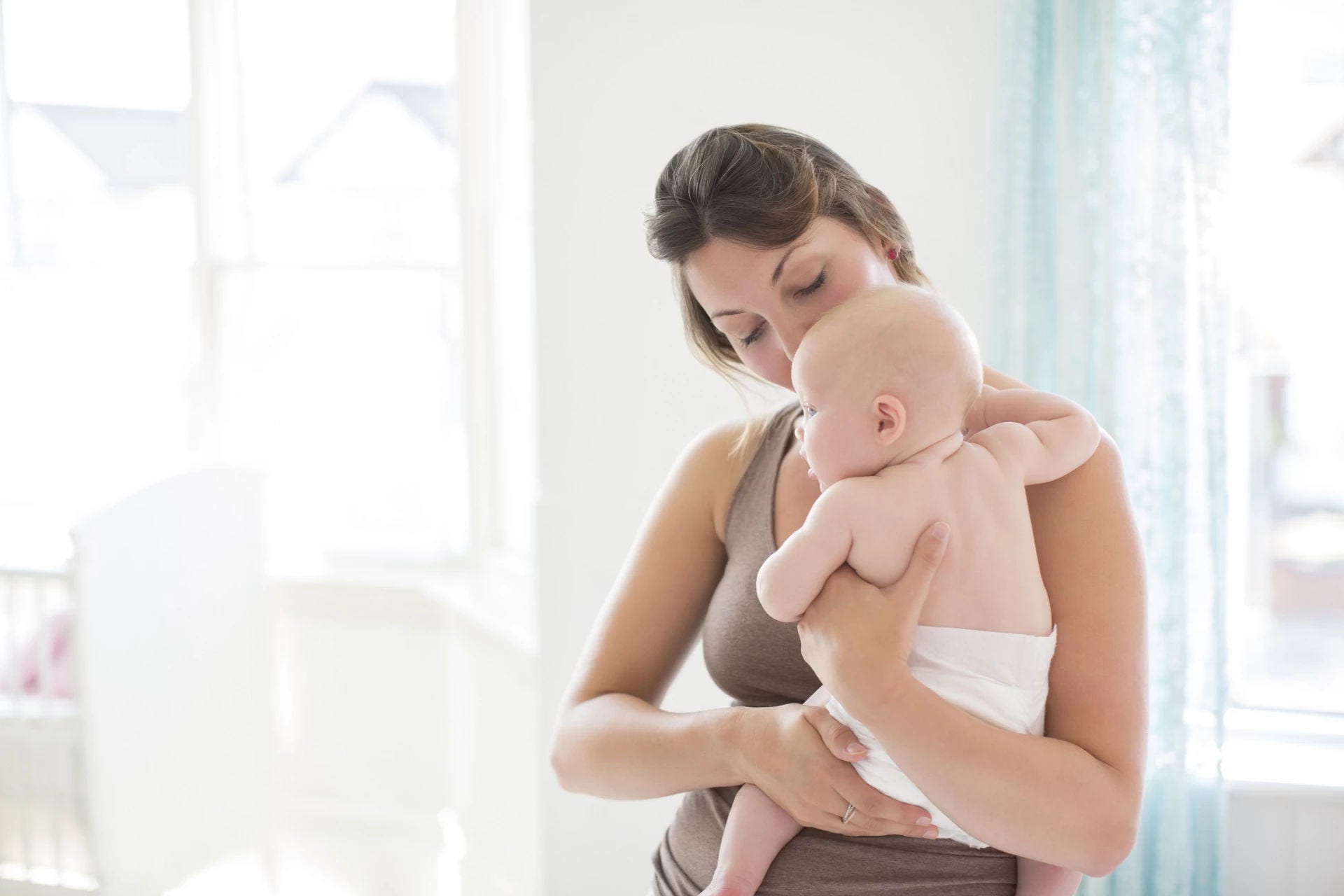Food allergies and food intolerances are types of ‘food hypersensitivity’ – when you have a bad reaction to a food. Although they’re different conditions, it’s easy to get them confused.
What's in this article
- Food allergies and intolerances
- What is a food allergy?
- Spotting the symptoms
- Common food allergies in babies
- What is a food intolerance?
- There are 4 main types of lactose intolerance
- What to do if you think your little one has a food allergy or intolerance
- What will happen if your GP suspects a food allergy?
Food allergies and intolerances
What is a food allergy?
If you have a food allergy, your immune system will react badly to a food that is harmless to someone without an allergy. The foods that trigger allergic reactions are called ‘allergens’. Food allergies are more common in little ones than adults; this may be because their immune and digestive systems aren’t yet fully developed. The most common foods that children are allergic to include:
• Cows’ milk
• Eggs
• Fish
• Wheat
• Soya
• Nuts
Allergic reactions can be described as ‘immediate’ or ‘delayed’. If they’re immediate, symptoms can occur within minutes or up to 2 hours after eating the allergen. If they’re delayed, it can take a few hours or even days for the symptoms to occur, which can make it difficult to diagnose.
Spotting the symptoms
Symptoms can vary, but they often involve:
• Skin reactions – itchy rashes, eczema and swelling of the lips, eyes and face
• Digestive problems – diarrhoea and vomiting
• Respiratory problems – wheezing and sneezing
Very occasionally, symptoms can become severe, leading to breathing problems, swelling of the throat, and anaphylaxis, which requires emergency medical treatment.
Common food allergies in babies
The most common food allergy in babies and young children is cows’ milk protein allergy. Symptoms usually appear when they start drinking infant formula or start weaning. And if you’re breastfeeding, your baby can sometimes react to the tiny amounts of cows’ milk protein which pass from your diet into your breastmilk.
What is a food intolerance?
A food intolerance is also when you have a bad reaction to a food. But unlike an allergy, this reaction does not involve the immune system. For example, someone with lactose intolerance doesn’t produce enough of the enzyme, lactase, to break down the lactose (a type of sugar) in certain foods – like dairy products. The undigested lactose then causes symptoms like diarrhoea, bloating and wind.
There are 4 main types of lactose intolerance:
1. Congenital lactose intolerance − this is an extremely rare condition, when a baby is born without the ability to produce lactase.
2. Primary lactose intolerance − an inherited condition leading to a deficiency in lactase. It doesn’t usually occur before the age of 2−3, and is more common in countries where dairy foods are not eaten as much, such as in Asia and parts of Africa and North/South America. Whereas, in Northern Europe, where people eat a lot of dairy, it's relatively rare. Most adults with lactose intolerance can tolerate small amounts of lactose throughout the day.
3. Secondary lactose intolerance − this is when the production of lactase is temporarily reduced because the cells in the gut that make it are damaged. This can happen after an infection, like gastroenteritis or persistent diarrhoea. Things usually get back to normal after a few weeks, once the gut has healed.
4. Developmental lactase deficiency – this affects some premature babies and means they are unable to produce enough lactase early on, but this improves as they get older.
As breastmilk contains lactose, babies are naturally designed to be able to digest it. That’s why primary lactose intolerance is not very common in infants, but they may suffer from secondary lactose intolerance after a tummy bug, or a condition like cows' milk protein allergy, that can damage the gut. These are normally temporary intolerances which disappear when the gut heals.
What to do if you think your little one has a food allergy or intolerance
If you think your baby has a food allergy or intolerance, you should talk to your GP or public health nurse about it. I you think your baby is having an anaphylactic reaction (a severe reaction where your baby may struggle to breathe, become floppy or faint, or show swelling of the lips, hands or feet), they will need emergency medical treatment.
What will happen if your GP suspects a food allergy?
If your GP thinks your baby could have a food allergy, they may ask you a number of questions, such as:
• When did the symptoms start?
• What symptoms have occurred?
• How severe are they?
• How long do they last?
• What foods do you suspect?
• What foods have you have tried avoiding?
So, it can be helpful to take a diary of symptoms with you showing what reactions happened and what foods were eaten at the time. They may also ask if you, your partner or other children have any allergies.
Your baby may need to have some tests to make sure they get the right diagnosis. This is usually done at a hospital, where you should also get some information about support groups in your area.
If your baby has suspected cows’ milk protein allergy, your GP should be able to give you advice on what to eat if you are breastfeeding, or which hypoallergenic formula to use if you are bottlefeeding.
More from baby
Baby topics
Any more questions?
Our specialist baby advisors and experienced mums are here to talk and ready to help whenever you need them.
Ask us a question (8am - 8pm Mon-Fri, 10am - 5pm Weekends)
Email us
Send us an email (8am-8pm Mon-Fri, 10am-5pm Sat)
Call Us
Call us on 1800 570 570 (8am-8pm Mon-Fri, 10-5pm Sat)
FAQs
For all the latest information






?ts=1758017045241&dpr=off)







